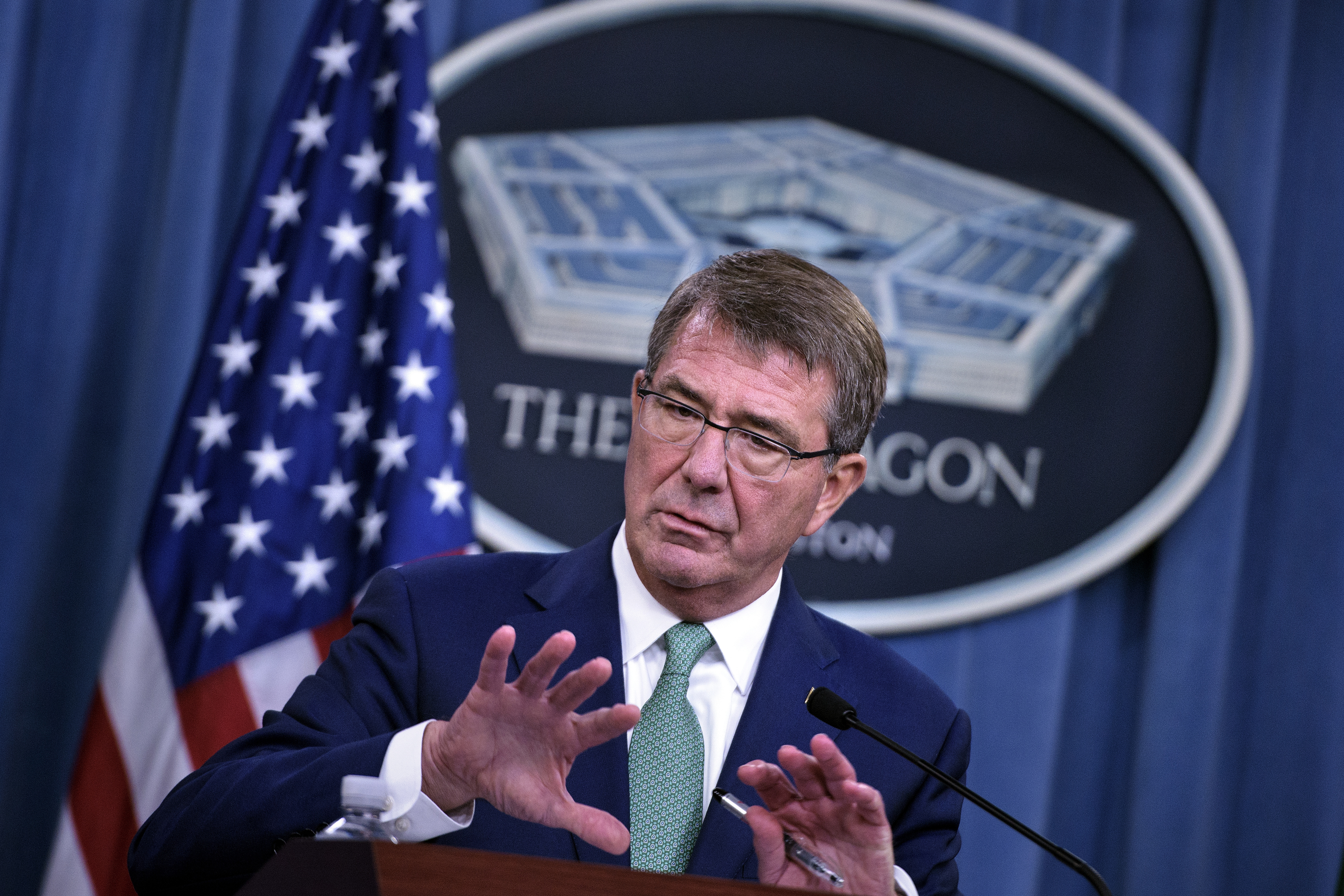
/ AFP PHOTO / Brendan Smialowski
SAN DIEGO, United States (AFP)– US Defense Secretary Ashton Carter said Thursday that America’s alliance with the Philippines was “ironclad,” despite that country’s president vowing a day earlier to end joint military exercises.
“As it has been for decades, our alliance with the Philippines is ironclad,” Carter said, addressing troops aboard the USS Carl Vinson aircraft carrier, docked in San Diego.
On Wednesday, Philippines President Rodrigo Duterte said he would soon end joint military exercises with the United States.
Speaking in Hanoi during a two-day visit to Vietnam, Duterte said next month’s military drills with America would be the last in his term.
Carter was in San Diego on his way to Hawaii, where on Friday he will host a meeting for defense ministers of the Association of Southeast Asian Nations (ASEAN).
He did not discuss the Philippines further, except to note that the United States will continue to support the modernization of the Philippines’s armed forces, through the so-called Enhanced Defense Cooperation Agreement.
Carter’s trip to Hawaii comes with less than four months of the Obama administration remaining.
A key question at the meeting will be future plans for America’s “rebalance” to Asia, during which Obama has tried to shift the US focus away from Middle East quagmires and toward rapidly growing Asia.
He has mended relations with Myanmar, Vietnam and Laos, while bolstering regional blocs and providing a counterbalance to China’s regional ambitions.
Regional nations are deeply concerned by China’s rapid push to build up and militarize islets in the South China Sea and its far-ranging claims over much of the strategically and economically vital waterway.
Carter stressed, as he has repeatedly in recent months, that the US Navy would continue to ignore China’s territorial claims and sail through waters surrounding the islands.
“The US-China relationship will have elements of cooperation but also competition,” he said.
“We hope that China chooses to join the rest of the region in strengthening and upholding the shared principles that have helped so many nations around the region, including China, to rise and prosper.”
Carter stressed the Asia focus would continue into the future.
Republican presidential candidate Donald Trump, in a tightened race against Democratic rival Hillary Clinton ahead of the November 8 election, has called mutual defense treaties with South Korea and Japan into question.







